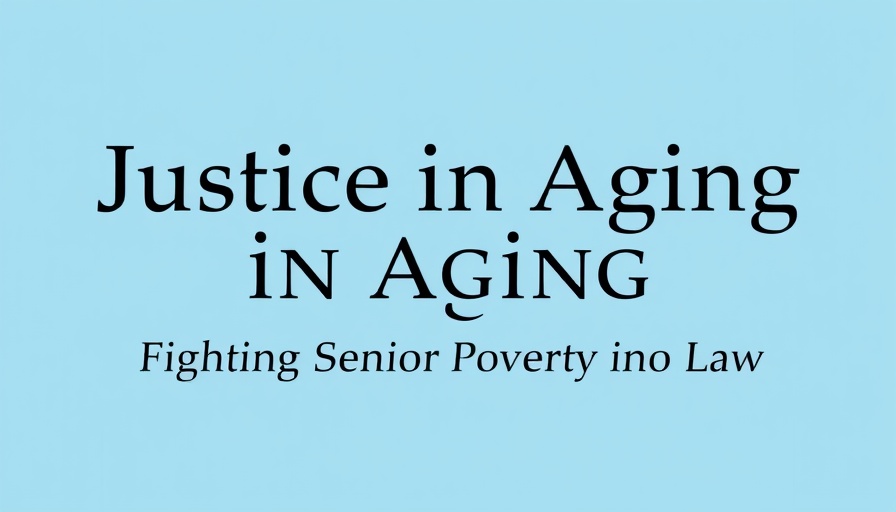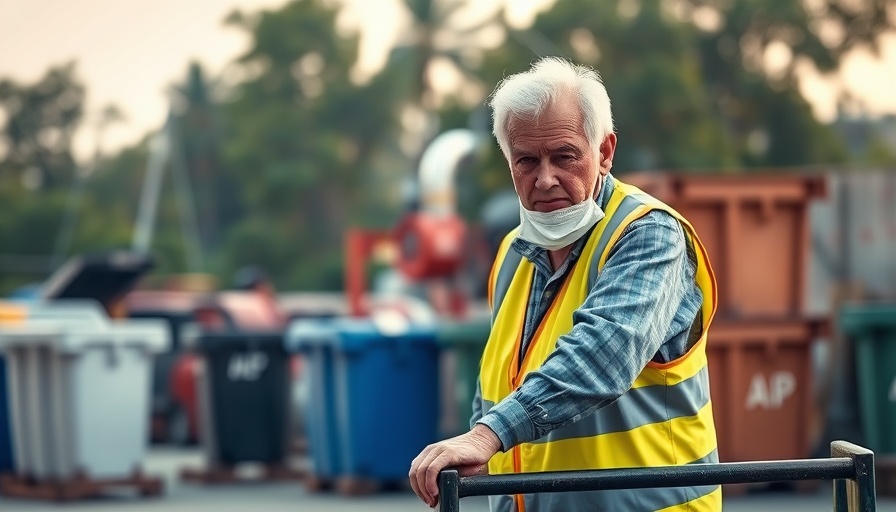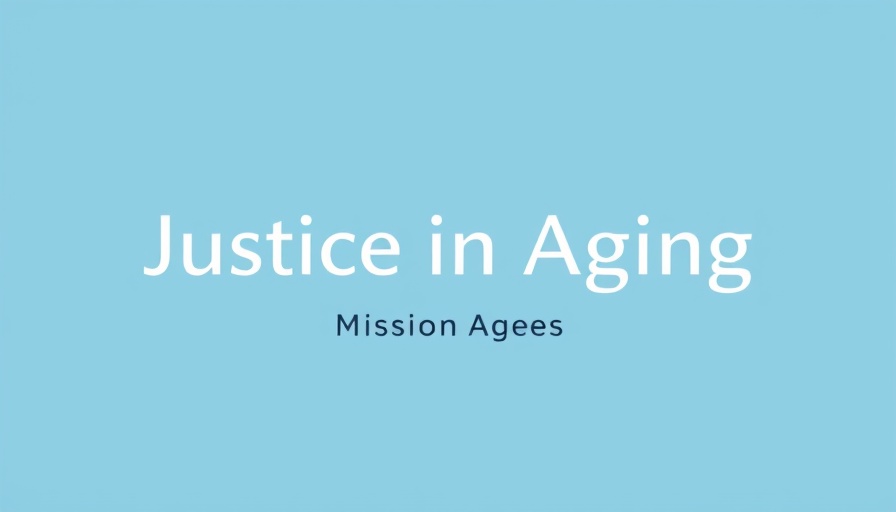
The Challenge of Inequitable Support for Older Immigrants
Older immigrants in the U.S. face significant challenges when it comes to accessing essential services and support. With over 8 million immigrants aged 65 and above, many are subjected to difficult circumstances, including poverty and language barriers. These barriers often prevent them from obtaining necessary healthcare, housing, and economic security. As this demographic continues to grow, understanding their struggles becomes increasingly critical for ensuring their rights are upheld and their well-being is prioritized.
Current Policy Landscape and Its Impact
Since the onset of more stringent immigration policies, many older immigrants have refrained from seeking help due to a pervasive sense of fear born from possible repercussions. This chilling effect leads to fewer interactions with essential services, ranging from healthcare to community resources. Recent administrations have enacted policies that threaten the availability of services these seniors depend upon, compounding the vulnerability already faced by this demographic.
Healthcare Access: A Locked Door?
The fear surrounding public charge regulations has pronounced implications for older immigrants. Their hesitation to access health services out of concern that seeking help may affect their immigration status has led to declining health outcomes. It is essential to recognize that many older immigrants also work in the direct care workforce, providing critical support to the very community that they are part of, yet they often find themselves without proper support structures in place.
Language Barriers: Silent Struggles
Older immigrants often have limited English proficiency, and the rescinding of guidance for supporting individuals with these needs has further isolated them from necessary resources. Without effective translation or interpretation services, healthcare providers may fail to communicate effectively with these seniors, leading to a lack of critical information about their care and rights.
Economic Security: A Balancing Act
Poverty is notably prevalent among older immigrants, who frequently work well into their retirement years due to economic necessity. However, this labor does not always guarantee financial security, especially when they do not qualify for federally funded programs until they achieve ‘qualified’ immigration status. As a result, many struggle to make ends meet, juggling multiple jobs or relying on family support.
The Need for Holistic Approaches
Addressing the multifaceted challenges faced by older immigrants requires a comprehensive approach. Policies must recognize their unique vulnerabilities while promoting inclusive practices. This includes improved access to healthcare resources, language support, and advocacy to ensure their rights are safeguarded.
Future Implications for Policy Makers and Advocates
The struggles of older immigrants should prompt policymakers and community organizations to rethink how they structure services. Emphasis needs to shift towards integrated models of support that not only provide essential services but also foster trust within immigrant communities. By doing so, we can pave the way for a more equitable and supportive environment for all older adults.
What You Can Do to Help
As a community member or advocate, consider engaging in local initiatives that support older immigrants. This might include volunteering with organizations that offer translation services, financial advice, or legal support. Awareness is the first step toward change—educating others about the needs of older immigrants can mobilize collective action aimed at establishing a more inclusive society.
Older immigrants deserve the same access to resources and opportunities as any other member of society. Their contributions to our communities are invaluable, and it is time we ensure their voices are heard and their rights protected.
 Add Row
Add Row  Add
Add 




 Add Row
Add Row  Add
Add 

Write A Comment